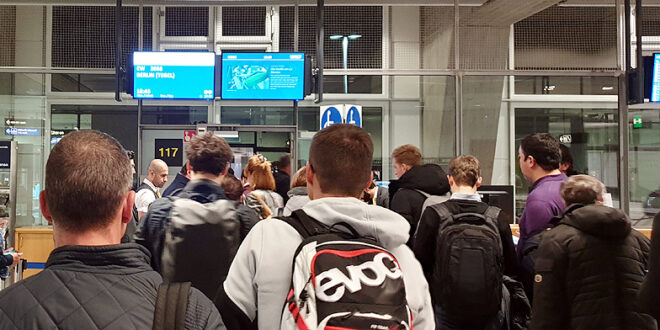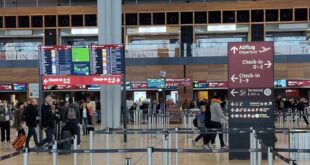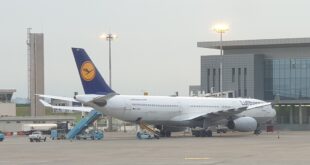Bulgaria and Romania have become Schengen members. From 31 March, the Schengen rules will apply in both EU member states including on issuing Schengen visas while controls at the internal air and sea borders will be lifted.
Commenting on the epochal event, the President of the European Commission, Ursula von der Leyen, said: “I welcome the lifting of internal air and sea border checks. This is a great success for both countries. And a historic moment for the Schengen area – the largest area of free movement in the world. Together, we are building a stronger, more united Europe for all our citizens.”
The two countries reached an agreement with the EU late last year to join the bloc’s free-travel area by air and sea only after Austria opposed full membership, that includes land crossings, saying Romania and Bulgaria needed to do more to prevent irregular migration. Despite the partial membership, the lifting of controls at the two countries’ air and sea borders is of significant value.
Henceforth, travellers who fly from these two countries will not have to go through border checks when travelling to another Schengen Area country. Non-EU nationals wishing to visit either of them, will be able to apply for a Schengen visa at their consulates and embassies, which can then be used to visit the rest of the Schengen zone too.
Created in 1985, the Schengen area allows more than 400 million people in the European Union to travel freely without internal border controls.
The Schengen zone now comprises 29 members – 25 of the 27 EU member states as well as Switzerland, Norway, Iceland and Liechtenstein. The only EU countries that remain out of the Schengen agreement are Cyprus and Ireland, the latter by choice.
In a related development, the government of Romania has announced that travellers from 12 non-EU member countries now need to obtain a Schengen Transit Visa to pass through Romania to reach their non-Schengen destination country.
According to the Ministry of Foreign Affairs of Romania, the countries whose nationals now need a transit visa are:
- Afghanistan
- Bangladesh
- Democratic Republic of Congo
- Eritrea
- Ethiopia
- Ghana
- Iran
- Iraq
- Nigeria
- Pakistan
- Somalia
- Sri Lanka
The nationals of these 12 countries already need transit visas in order to pass through the international airports of any of the Schengen Area member states.
There are however exemptions to the obligation to obtain a transit visa by nationals of the 12 countries. Those holding residence permits issued by another Member State do not need a transit visa for Romania. Also, third-country nationals holding a valid residence issued by Andorra, Canada, Japan, San Marino or the United States of America, as well as any of the overseas countries and territories of the Kingdom of the Netherlands.
Romania has also announced that if third country nationals need to transit through more than one airport in the Schengen area, they need to apply for a regular Schengen visa because flights between two or more Schengen states are considered ‘internal’ flights.
Sola Jolaoso
 THE AFRICAN COURIER. Reporting Africa and its Diaspora! The African Courier is an international magazine published in Germany to report on Africa and the Diaspora African experience. The first issue of the bimonthly magazine appeared on the newsstands on 15 February 1998. The African Courier is a communication forum for European-African political, economic and cultural exchanges, and a voice for Africa in Europe.
THE AFRICAN COURIER. Reporting Africa and its Diaspora! The African Courier is an international magazine published in Germany to report on Africa and the Diaspora African experience. The first issue of the bimonthly magazine appeared on the newsstands on 15 February 1998. The African Courier is a communication forum for European-African political, economic and cultural exchanges, and a voice for Africa in Europe.





























